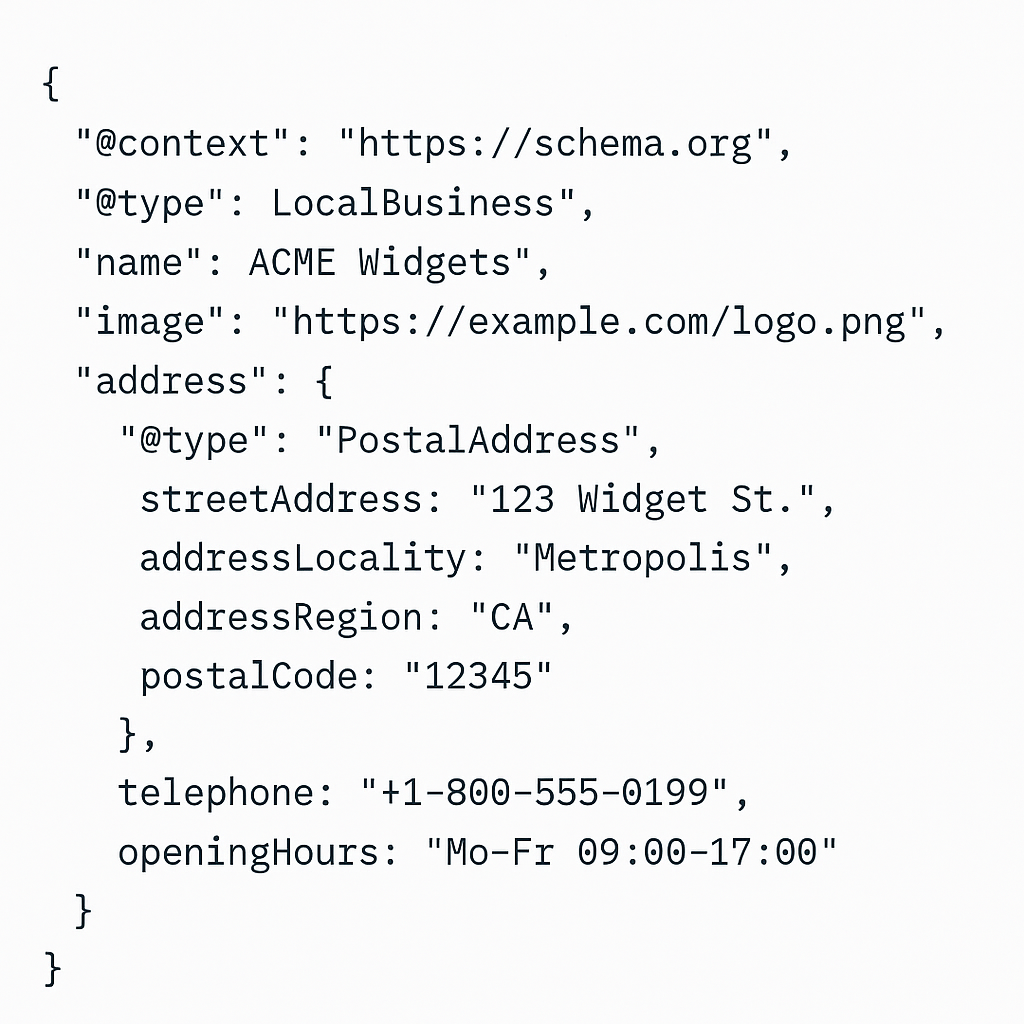Entity SEO is transforming our approach to optimising online presence for local businesses.
Unlike traditional keyword strategies, it utilises structured data to highlight relationships between entities, enhancing visibility in search results.
By aligning with search intent and leveraging semantic SEO, businesses connect deeply with their local market.
This shift improves search relevance and uncovers new opportunities, driving targeted traffic.
We are poised on the cusp of harnessing its full potential, beckoning us to explore further.
Understanding Entity SEO and Its Significance

While traditional SEO strategies have long relied on keyword optimisation, the rise of entity SEO marks a transformative shift in how we approach search engine visibility. Entity SEO enables local businesses to leverage structured data, linking content with relevant entities like landmarks. This strategy enhances search relevance and content visibility, aligning closely with diverse local search intents. By prioritising entity-based optimisation, we can effectively meet evolving search engine demands.
The Role of Entities in Enhancing Local Search Visibility
Entity SEO has fundamentally redefined how we enhance local search visibility, particularly through the use of structured data and schema markup. By leveraging entities, we provide search engines with relevant information, boosting local SEO. Here’s how:
- Appear in Google’s Knowledge Panels
- Highlight business details through structured data
- Connect with local points of interest
- Discover new keyword opportunities
- Improve content strategy and visibility
Entity SEO vs. Traditional Keyword Strategies

As the digital landscape evolves, many of us are re-examining our approach to SEO, pivoting from traditional keyword strategies to more nuanced entity SEO. By leveraging structured data and focusing on relationships between entities, we enhance semantic SEO, which better understands user intent. This shift improves local businesses’ visibility in search, as search engines prioritise entities over mere keyword frequency, driving more targeted traffic.
Identifying and Utilizing Core Entities for Local Businesses
As we explore the significance of core entities in local SEO, it’s vital to identify essential elements like business name, address, and phone number to enhance search visibility. Implementing locality-based SEO strategies, such as schema markup, allows us to define these entities clearly, improving our chances of appearing in local searches and the Knowledge Graph. By linking to local landmarks or events and regularly updating our entity profiles, we can boost search performance and maintain customer trust.
Essential Entities Identification
Identifying core entities is an essential step to enhancing a local business’s online presence and search visibility. By focusing on local entities, we can craft relevant content that aligns with search queries and boosts customer engagement. Here’s how:
- Conduct an entity audit to find gaps.
- Use structured data and schema markup.
- Highlight nearby landmarks.
- Integrate core entities into content.
- Engage with community events.
Locality-Based SEO Strategies
Building on the foundation of identifying essential entities, we can enhance local business SEO by implementing locality-based strategies that leverage these core elements. By using structured data and schema markup, we improve local search visibility and Knowledge Panels. Engaging with Geo-context through entity-rich content and local keywords boosts customer engagement. Tools like Local Falcon refine SEO strategies, ensuring our local businesses capture attention effectively.
Leveraging Structured Data for Improved Search Presence

Let’s explore how structured data can notably enhance our local search presence by using schema markup to clarify our business entities. By effectively communicating entities, we increase our chances of appearing in rich snippets and Knowledge Panels, which can boost our visibility and click-through rates. As local search trends continue to evolve, leveraging structured data is essential for improving our rankings and ensuring search engines accurately interpret our business information.
Enhancing Visibility With Schema
By leveraging structured data through schema markup, we can considerably enhance a business’s visibility in local search results. It enables search engines to present rich snippets, boosting organic search traffic and engagement. With schema, we ascertain:
- Improved placement in Knowledge Panels
- Clear communication of business details
- Enhanced understanding of entity relationships
- Appearance in relevant search results
- Increased chance of voice search discovery
Communicating Entities Effectively
While structured data is often overlooked, it’s vital for effectively communicating entities to search engines and improving search presence. By defining entities like NAP through schema markup, local businesses can guarantee Google’s Knowledge Graph accurately connects them. This enhances SEO and search rankings by delivering relevant information. Regular updates and audits of structured data are essential to maintain accurate, impactful visibility in search results.
Boosting Local Search Rankings
Implementing structured data is a powerful strategy for enhancing local search rankings. By using schema markup, we can clearly define our entity information, boosting visibility in search engines. This method connects us to relevant local entities, improving contextual relevance and increasing organic traffic by 20%. Here’s how:
- Define name, address, phone
- Utilise schema markup
- Enhance Knowledge Panels
- Increase rich snippet chances
- Link to local landmarks
Building Contextual Content With Entity-Based Approaches

As we explore building contextual content with entity-based approaches, it’s crucial to recognise how these strategies enhance local businesses’ visibility in search results. By focusing on entity-rich content tied to local entities and community events, we can optimise our content strategy to capitalise on keyword opportunities. Integrating structured data allows search engines to better interpret local search queries, improving engagement and establishing relevance within our community.
Practical Steps for Implementing Entity SEO in Local Marketing
Building contextual content with entity-based strategies naturally leads us to practical steps that enhance local marketing efforts. By integrating the following tactics, we can improve our SEO strategy and boost local search performance:
- Conduct an entity audit for local entities.
- Implement structured data for better search engine visibility.
- Craft entity-rich content about community events.
- Enhance internal linking for Google Search.
- Monitor local search relevance with tools.
Measuring the Impact of Entity SEO on Business Performance

While many businesses focus on traditional SEO metrics, understanding and measuring the impact of Entity SEO requires a more nuanced approach. By leveraging structured data, we enhance local visibility and align with user intent. Search engines reward this with increased performance metrics.
| Metric | Improvement | Source |
|---|---|---|
| Visibility | 30% | Structured Data Markup |
| Conversion Rates | 25% | Entity-Based Strategies |
| Engagement | 40% | Google Analytics Reports |
Optimise for entities to boost business outcomes.
Frequently Asked Questions
What Is Entity SEO?
Entity SEO optimizes entity recognition and semantic search by leveraging the knowledge graph to enhance brand authority and local relevance. We focus on search intent and context understanding, improving digital footprint, information retrieval, and user experience.
Is SEO Worth It for Local Businesses?
Yes, SEO’s essential for local businesses. It enhances local visibility, boosts search rankings, and improves customer engagement. By optimizing our online presence, we gain a competitive advantage, increase brand awareness, and enhance user experience, driving lead generation.
What Is SEO for Local Business?
We approach SEO for local businesses by enhancing local search visibility through keyword optimization, Google My Business, and citation building. We leverage customer reviews, mobile optimization, local backlinks, content marketing, social media, and competitor analysis for mastery.
Why Is SEO Important for Small Business?
SEO’s essential for small businesses; it enhances local visibility, boosts brand awareness, and improves customer engagement. We leverage digital marketing for search rankings, audience targeting, and online reputation, gaining a competitive advantage, increased website traffic, and higher conversion rates.
Final Thoughts
To summarise, we’ve seen how Entity SEO is reshaping the landscape of local search visibility by moving beyond traditional keywords. By identifying and leveraging core entities, local businesses can enhance their search presence and connect more meaningfully with their audience. Utilising structured data and crafting contextual content allows us to stay ahead of trends and effectively measure performance. As we implement these strategies, let’s embrace this analytical approach to optimise our local marketing efforts.





